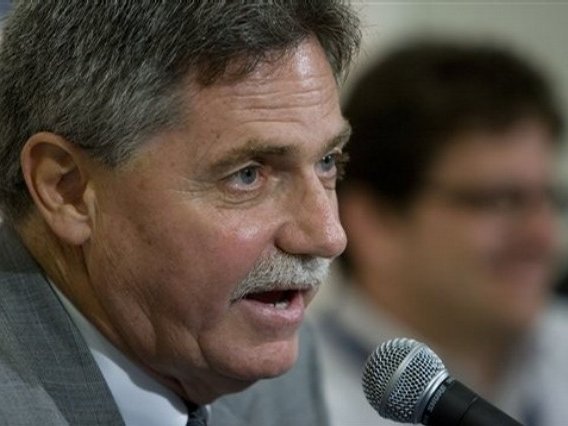Don't fret Brewers fans; all is not lost.
Though the Brewers made the playoffs for the first time in 26 years, the holiday season looks a bit bleak for the club.
As expected, CC Sabathia graciously accepted the key to the Brinks truck driven to his front door by the New York Yankees and is likely to throw the first pitch in the new Yankee Stadium next season.
Ben Sheets, maligned throughout his Milwaukee career by a string of freak injuries, is almost sure to exit; probably ending up in Texas, where former pitching coach Mike Maddux is working with the Rangers.
Salomon Torres, who performed admirably in the closer's role a year ago, is gone, too, after announcing his retirement.
It's no surprise that people are down on the crew, but really ... isn't it a little early to throw in the towel?
If there's anything worth believing in these days, it's Doug Melvin's ability to put together a baseball team. While more than 3 million fans passed through the turnstiles, it shouldn't be a surprise -- given the Milwaukee market size -- that Melvin and owner Mark Attanasio didn't break the bank to land Sabathia or any of the other top-flight free agent pitchers available on the market.
Dropping big money on pitching is a dangerous proposition. Look at San Francisco and Barry Zito ... or, locally, the returns on the $42 million Jeff Suppan investment as evidence. The Brewers are better off trusting Yovani Gallardo and Manny Parra to anchor the rotation, plug in a mix-or-match of Seth McClung or Dave Bush and land a B-list pitcher on a one or two-year deal to go along with Suppan to round out the starting five.
And while the lineup still has some glaring weaknesses, there's reason to be optimistic. Ryan Braun is locked in for years to come and will benefit from having a full season in left field under his belt. If Prince Fielder isn't dealt for pitching help, he's still a dangerous presence in the lineup. J.J. Hardy won't be confused for Robin Yount, but is still capable of hitting 20 home runs.
Corey Hart made the All-Star team last year, but faltered down the stretch when he got into a slump and couldn't get a day out of the lineup because of Gabe Kapler's injury. It stands to reason that he should be back to full strength by Opening Day; his career numbers back that up.
Is Bill Hall a liability? No doubt about it. Will Mike Lamb be the long-term answer? Probably not. But that's just it: it's only Dec. 14. There are still two months before pitchers and catchers report to Maryvale, leaving Melvin plenty of time to tinker with the lineup.
While he wants badly to go out and upgrade the team's on-base percentage, cut down the strikeout rate and find some balance, its highly unlikely a team will part with a star in the making and take an underachiever in return.
In the meantime, Melvin can make calls, gauge interest and wait ... just like the rest of us.
The concern -- and focus -- now should be on the bullpen. This team needs to find a way to protect leads and not put the onus on its sluggers late in games. The Eric Gagne experiment was a gamble, but more of a failure than a mistake -- the Brewers needed a closer and took a flier on Gagne ... when was the last time the team could afford a $10 million gamble?
If Brian Shouse doesn't get the two-year deal he's seeking, he could be back. Guillermo Mota pitched well during the final weeks after a mid-season meltdown. David Riske should be back to full strength by the start of spring training. Carlos Villanueva showed consistency out of the bullpen. Todd Coffey was a savior during the stretch run and could play an integral role next season.
If Melvin can't trade for a stopper, history is on his side. Though they eventually flamed out or ended up elsewhere, Melvin picked Dan Kolb, Derrick Turnbow and Francisco Cordero off the scrap heap and turned them into All-Star closers.
The Brewers have needs and Melvin no doubt has some work to do. But the current regime has shown a penchant for sound planning and no doubt expected that losing both pitchers was more of a probability than a possibility, and likely formulated a viable Plan B option.
It's a crushing blow for any team to lose a pair of quality pitchers after such an exciting year. But that's all part of the game. The good teams make smart decisions and find ways to stay competitive.
Melvin, entering his eighth season on the job, has shown that he's got the savvy to build a winner.







